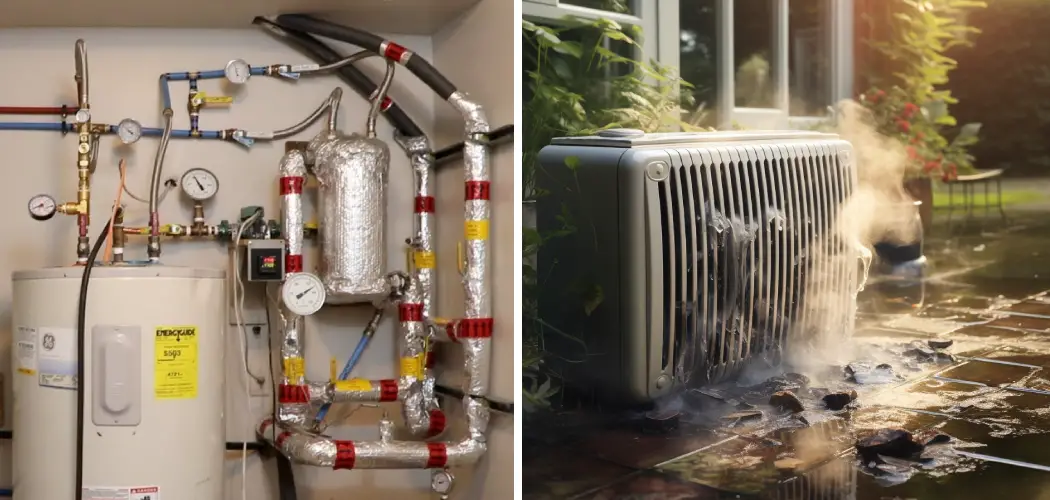Hot water is an essential part of daily life, whether it’s for taking a shower, washing dishes, or doing laundry.
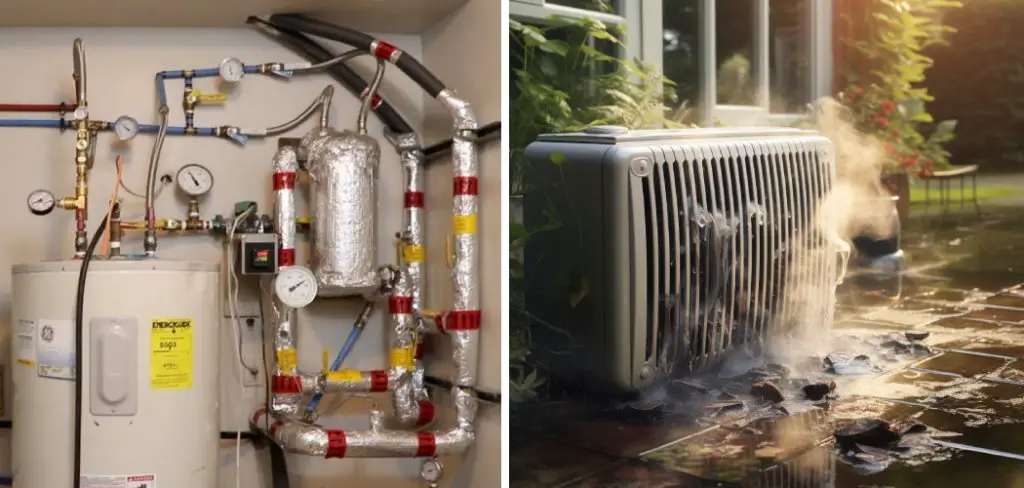
However, there’s nothing worse than running out of hot water in the middle of a task. Fortunately, with proper planning and maintenance, you can ensure that you never run out of hot water again. In this guide on how to never run out of hot water, we’ll discuss some tips and tricks to help you never run out of hot water.
Necessary Items
Before we discuss the steps to never running out of hot water, let’s go over the necessary items you’ll need.
- A High-quality Water Heater: The type and size of water heater you choose will depend on your household’s needs. A tankless water heater is a popular option as it provides an endless supply of hot water on demand.
- Proper Insulation: Insulating your hot water pipes and tank will help retain heat, reducing the amount of energy needed to maintain hot water.
- Regular Maintenance: It’s crucial to service your water heater regularly to ensure it’s operating efficiently and identify any potential issues that may cause a lack of hot water.
12 Ideas on How to Never Run Out of Hot Water
Idea 1: Inspect Your Water Heater Regularly
To avoid any surprises, it’s essential to inspect your water heater regularly. Look for signs of wear and tear such as rust or leaks, and address them immediately. Also, check the temperature and pressure relief valve to ensure it’s functioning correctly.
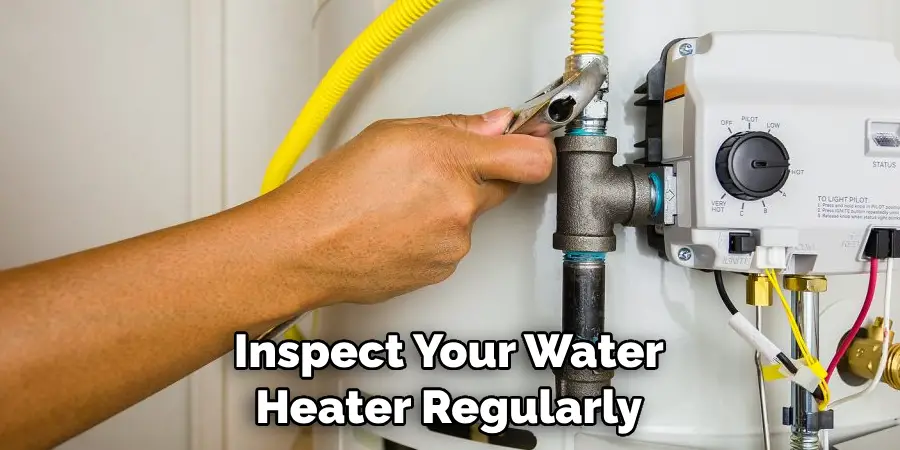
Idea 2: Set Your Water Heater at the Ideal Temperature
Setting your water heater too high can not only be dangerous but also lead to higher energy bills. The ideal temperature for hot water is between 120-140 degrees Fahrenheit. Any higher than that can increase the risk of scalding and waste energy.
Idea 3: Consider a Tankless Water Heater
As mentioned earlier, tankless water heaters provide an endless supply of hot water on demand. This means you’ll never run out of hot water, no matter how much you use it. However, keep in mind that they can be more expensive to install initially.
Idea 4: Insulate Your Hot Water Tank and Pipes
Proper insulation is essential to retain heat in your hot water tank and pipes. Insulating material can be purchased at most hardware stores, or you can hire a professional to do it for you. While this may require an initial investment, it can significantly reduce your energy bills in the long run.
Idea 5: Use a Timer
If you have an electric water heater, consider using a timer to schedule when it turns on and off. This way, you can avoid heating water during times when no one is home or while you’re sleeping, saving energy and reducing costs.
Idea 6: Consider Your Household’s Needs
When choosing a water heater, consider your household’s hot water needs. If you have a large family with high hot water usage, you may need a larger tank or multiple tankless units to ensure an endless supply of hot water.
Idea 7: Use Low-Flow Fixtures
Low-flow fixtures such as showerheads and faucets can significantly reduce the amount of hot water used without compromising on water pressure. This not only saves energy but also ensures hot water lasts longer.
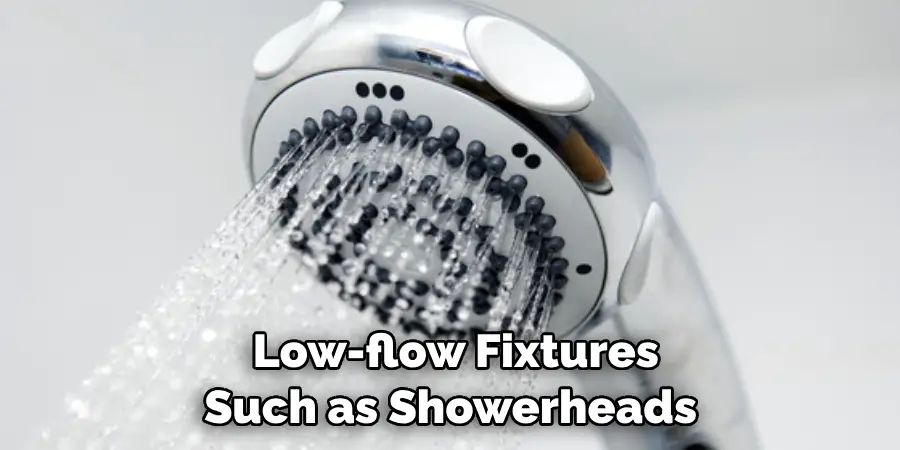
Idea 8: Repair Any Leaks
Even minor leaks in your hot water pipes or faucet can lead to a significant loss of hot water over time. Regularly inspect and repair any leaks to ensure you have an ample supply of hot water. Also, consider replacing old fixtures that may be causing leaks.
Idea 9: Schedule Hot Water Usage
If your household tends to use a lot of hot water at the same time, try scheduling it throughout the day. For example, some family members take showers in the morning while others do laundry or dishes at night.
Idea 10: Consider Adding an Expansion Tank
An expansion tank is a small tank that connects to your water heater and absorbs any excess pressure from the hot water. This helps reduce strain on your water heater, improving its efficiency and ensuring a steady supply of hot water.
Idea 11: Flush Your Water Heater Regularly
Flushing your water heater regularly removes sediment buildup, ensuring it operates efficiently and providing an adequate supply of hot water. Most manufacturers recommend flushing your water heater at least once a year.
Idea 12: Upgrade to a Larger Water Heater
If you find that you’re constantly running out of hot water, it may be time to upgrade to a larger water heater. Consult with a professional to determine the right size for your household’s needs and budget.
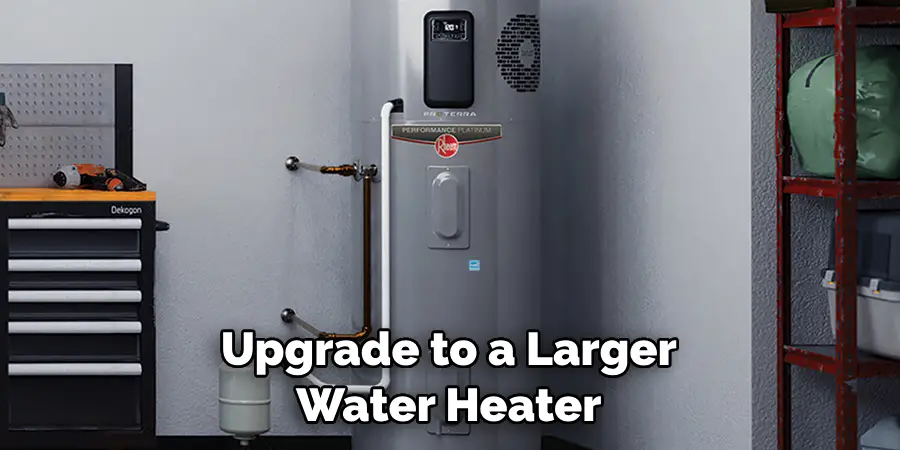
Running out of hot water can be a frustrating and inconvenient experience. By following these tips, you can ensure that you never run out of hot water again. Remember to regularly inspect and maintain your water heater, consider your household’s needs when choosing a water heater, and implement energy-saving practices to ensure a steady supply of hot water for all your daily tasks.
No matter what type of water heater you have, with proper care and attention, you can enjoy endless hot water for years to come. So go ahead and take that long, steamy shower or do laundry without worrying about running out of hot water – you’re covered!
9 Safety Measures to Keep in Mind
While hot water is a necessity in our daily lives, it’s essential to keep safety in mind. Here are nine safety measures to follow when dealing with hot water.
1) Recommended Temperature Range
As mentioned earlier, the ideal temperature for hot water is between 120-140 degrees Fahrenheit. Any higher than that can lead to scalding and burns, especially in young children and older adults. Also, make sure to check the temperature of the bathwater before getting in.
2) Proper Insulation
Insulating your hot water tank and pipes not only helps save energy but also reduces the risk of accidental burns. Hot water pipes can reach high temperatures and cause severe burns if not properly insulated.
3) Regular Maintenance
Regularly servicing your water heater ensures it operates efficiently and safely. Make sure to schedule annual maintenance and address any issues promptly. Even minor problems can escalate and become hazardous if left unattended.
4) Keep Flammable Objects Away
Make sure to keep any flammable objects, such as cleaning supplies or paper products, away from your water heater. The heat generated by the water heater can potentially ignite these items, causing a fire.
5) Use Caution When Adjusting Temperature
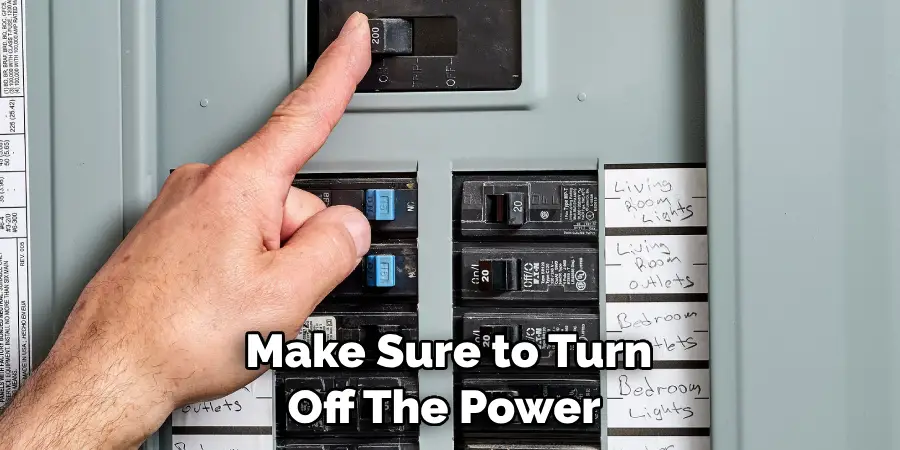
When adjusting the temperature of your water heater, use caution and follow manufacturer instructions. Make sure to turn off the power to the water heater before making any changes. Soapy water or grease can cause electrical connections to become loose, leading to shock or fire hazards.
6) Keep Children Away
Children are naturally curious and may want to touch or play with the water heater. Make sure to keep them away from the area and educate them about the potential dangers of hot water. Even if your water heater is properly insulated, it’s best to err on the side of caution.
7) Ventilation
Ensure that your water heater has proper ventilation to prevent a buildup of carbon monoxide. Carbon monoxide is a colorless and odorless gas that can be deadly in high concentrations. If you notice any signs of carbon monoxide buildup, such as a yellow flame or soot around the water heater, contact a professional immediately.
8) Know How to Shut Off Water and Power
In case of an emergency, it’s essential to know how to shut off the water and power to your water heater. This should be clearly marked on your unit or in the user manual. Knowing how to do this can prevent further damage or accidents.
9) Consult a Professional
If you notice any problems with your water heater, it’s best to consult a professional rather than trying to fix it yourself. They have the knowledge and expertise to handle any issues safely and effectively.

Overall, by following these safety measures on how to never run out of hot water, you can ensure that your hot water supply is not only reliable but also safe for you and your family.
Remember to regularly maintain your water heater, keep flammable objects away, and use caution when adjusting temperature or handling any issues. With proper care and awareness, hot water can remain a necessary convenience in our daily lives without posing any dangers.
8 Things to Avoid to Extend the Lifespan of Your Water Heater
Water heaters may seem like a one-time investment, but they do require regular maintenance and care to extend their lifespan. Here are eight things to avoid that can damage your water heater and shorten its lifespan.
1) Ignoring Leaks
Leaking water heaters are not only wasteful but also indicate underlying issues that can lead to more significant problems down the line. Ignoring leaks or attempting to patch them up temporarily can cause more damage and result in costly repairs.
2) Flushing With Hard Water
Hard water contains high levels of minerals such as magnesium and calcium, which can build up inside your water heater and reduce its efficiency. Make sure to use a water softener or install a water softening system to prevent this buildup.
3) Overworking the Water Heater
Using excessive amounts of hot water can strain your water heater and cause it to wear out faster. This is especially true if you have a small water heater that is not suitable for your household’s needs. Consider upgrading to avoid overworking your water heater.
4) Skipping Annual Maintenance
Annual maintenance is crucial for the proper functioning and longevity of your water heater. Skipping this can lead to minor issues turning into major problems, resulting in expensive repairs or replacements.
5) Not Flushing Regularly
Over time, sediment from hard water can accumulate at the bottom of your water heater tank, decreasing its efficiency and lifespan. Regularly flushing your water heater can remove this buildup and help it operate more effectively.
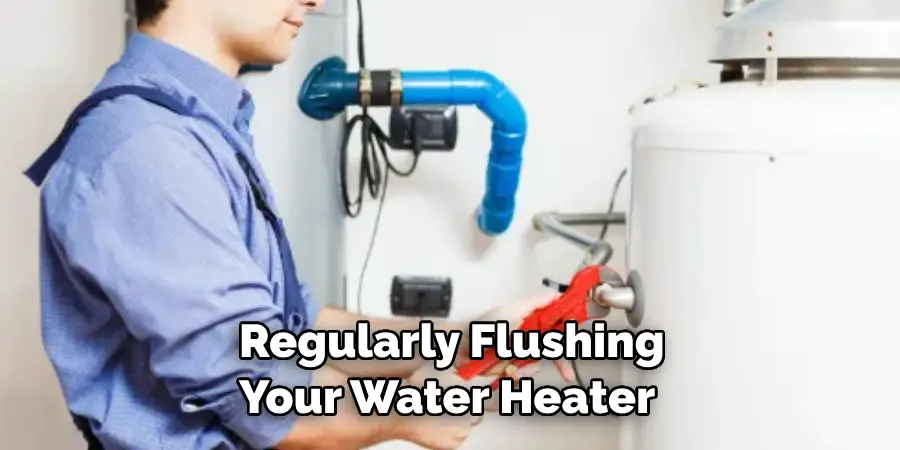
6) Using Harsh Cleaners
Using harsh chemicals or cleaners to clean your water heater can damage its interior and cause corrosion. Instead, use mild soap and warm water to clean the exterior, and consult a professional for any internal cleaning.
7) Ignoring Strange Noises
If your water heater is making strange noises, it could be a sign of an underlying issue. Ignoring these sounds can lead to further damage and potentially dangerous situations. It’s best to address any unusual noises by consulting a professional.
8) Using the Wrong Size or Type
Using the wrong size or type of water heater for your household needs can cause strain on the unit and lead to a shorter lifespan. Make sure to consult a professional when choosing the right water heater for your home or when considering an upgrade.
By avoiding these eight things, you can ensure that your water heater operates efficiently and lasts for years to come. Remember to regularly maintain your water heater, address any issues promptly, and use caution when handling or cleaning it. With proper care, you can enjoy a reliable and long-lasting hot water supply.
8 Additional Tips for Proper Water Heater Maintenance
Aside from avoiding certain things, there are also proactive measures you can take to properly maintain your water heater and ensure its longevity. Here are eight additional tips for maintaining your water heater.
1) Regularly Check the Pressure Relief Valve
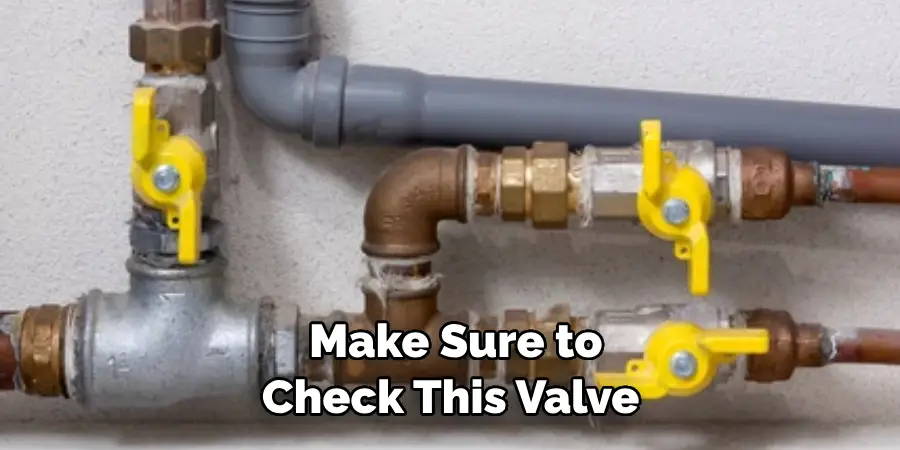
The pressure relief valve on your water heater is a safety feature that releases excess pressure if the temperature or pressure inside the tank becomes too high. Make sure to check this valve at least once a year to ensure it is functioning correctly.
2) Inspect and Replace Anode Rods
Anode rods are sacrificial rods that protect the interior of your water heater from corrosion. Over time, these rods can become depleted and need replacement. It’s essential to inspect them regularly and replace them as needed to prevent damage to your water heater.
3) Keep the Area Around Your Water Heater Clear
Make sure to keep any flammable objects, such as paints or cleaning chemicals, away from your water heater. It should have at least two feet of clearance on all sides to ensure proper ventilation and reduce fire hazards.
4) Test the Temperature and Pressure Relief Valve
The temperature and pressure relief valve is another safety feature that should be tested at least once a year to ensure it is functioning correctly. If the valve does not release hot water when opened, it may need to be replaced.
5) Adjusting the Temperature
It’s important to keep your water heater’s temperature at or below 120 degrees Fahrenheit to prevent scalding and reduce energy costs. If you need to adjust the temperature, make sure to follow the manufacturer’s instructions carefully.
6) Insulate Your Water Heater
Insulating your water heater can help it operate more efficiently and save on energy costs. Make sure to use an insulation blanket specifically designed for water heaters and avoid covering any safety features or controls.
7) Check the Anode Rod Regularly
Aside from replacing anode rods when needed, it’s also essential to check them regularly for any signs of corrosion. If they are heavily corroded, it may be a sign of an underlying issue that needs to be addressed.
8) Consult a Professional
If you are unsure about how to properly maintain your water heater or suspect any issues, it’s always best to consult a professional. They can provide expert advice and handle any repairs or replacements to ensure your water heater is functioning optimally.
Following these additional tips on how to never run out of hot water can help you keep your water heater in top condition and extend its lifespan, saving you time and money in the long run.
Remember, proper maintenance is key to enjoying a reliable and efficient hot water supply. So, make sure to schedule regular maintenance and address any issues promptly to keep your water heater running smoothly.
Frequently Asked Questions
How Often Should I Flush My Water Heater?
It is recommended that your water heater be flushed at least once a year, but if you have hard water, it may need more frequent flushing. Consult a professional for advice on how often to flush your specific water heater.
Can I Clean My Water Heater with Vinegar?
Yes, mild white vinegar can be used to clean the interior of your water heater. However, it’s best to consult a professional before attempting any cleaning or maintenance to prevent damage.
What is the Average Lifespan of a Water Heater?
The average lifespan of a water heater is around 8-12 years, but with proper maintenance, it can last up to 15 years or more.
How Do I Know If My Water Heater Needs Replacing?
If your water heater is over 10 years old and showing signs of corrosion or frequent issues, it may be time for a replacement. Consult a professional for an assessment and advice on the best course of action. Remember to consider factors such as household needs, energy efficiency, and cost when deciding on a new water heater.
Is it Safe to Service My Water Heater Myself?
While there are some maintenance tasks that can be safely done by homeowners, it is always recommended to consult a professional for any repairs or replacements. Handling a water heater can be dangerous, and it’s best to leave it to trained professionals for your safety and the proper functioning of your unit.
Remember, prevention is better than dealing with costly repairs or accidents due to improper handling of your water heater. Always prioritize safety and consult a professional if you have any doubts or concerns about your water heater.
Conclusion
Proper maintenance is crucial for keeping your water heater running efficiently and prolonging its lifespan.
By avoiding certain behaviors, following recommended maintenance tasks, and consulting a professional when needed, you can ensure that your water heater provides reliable hot water for years to come. Remember to prioritize safety, regularly maintain your unit, and address any issues promptly for optimal performance.
With these tips on how to never run out of hot water in mind, you can enjoy a hassle-free hot water supply and save on energy costs in the long run. So, don’t neglect your water heater, and make sure to prioritize its maintenance to avoid any unexpected problems in the future.

